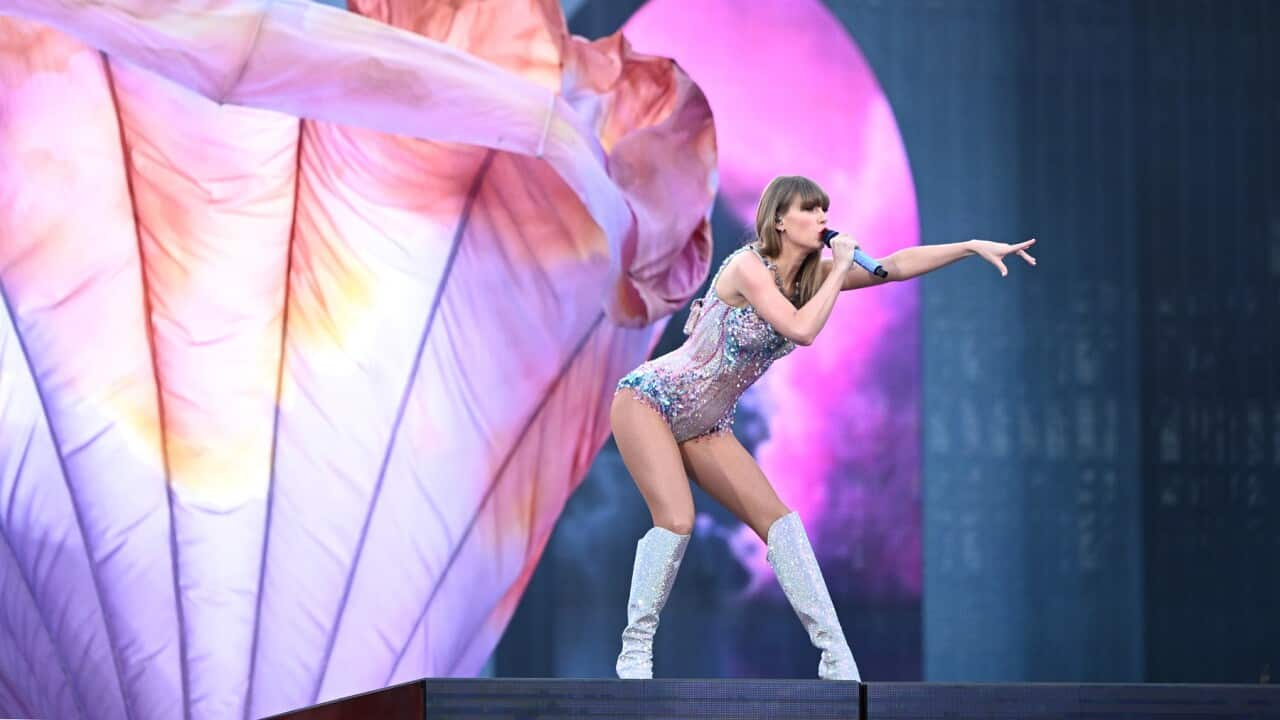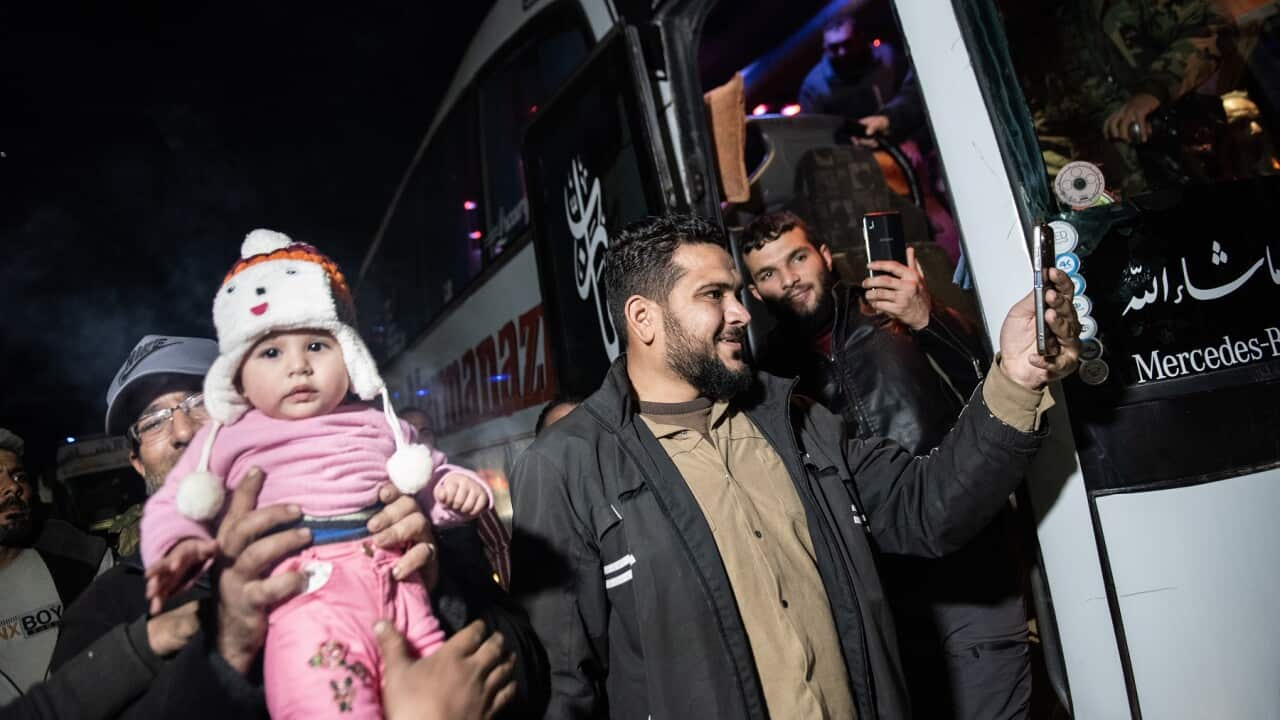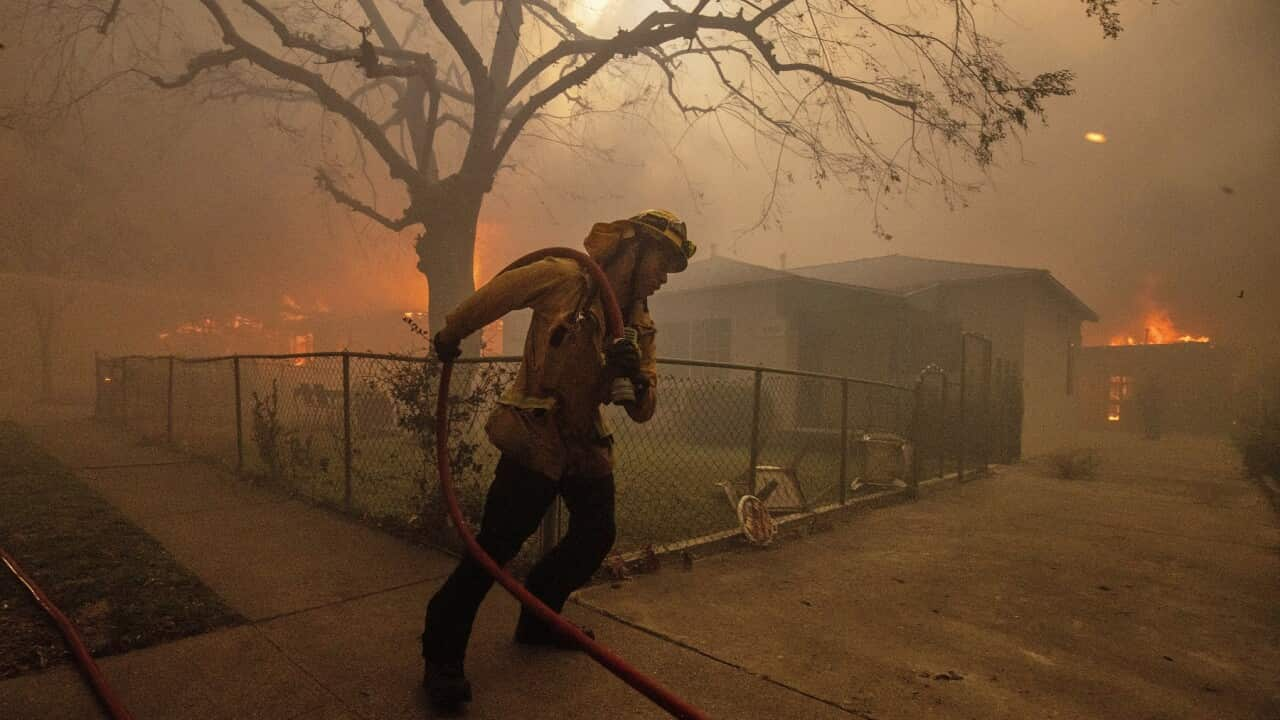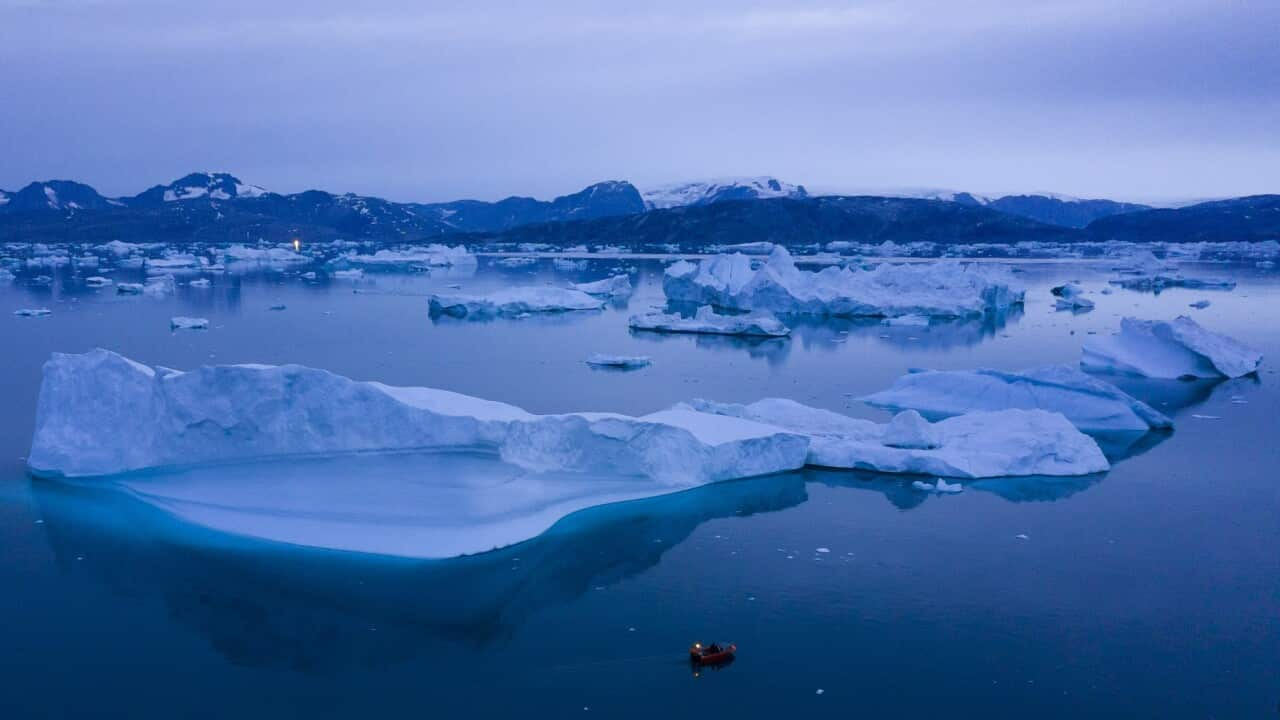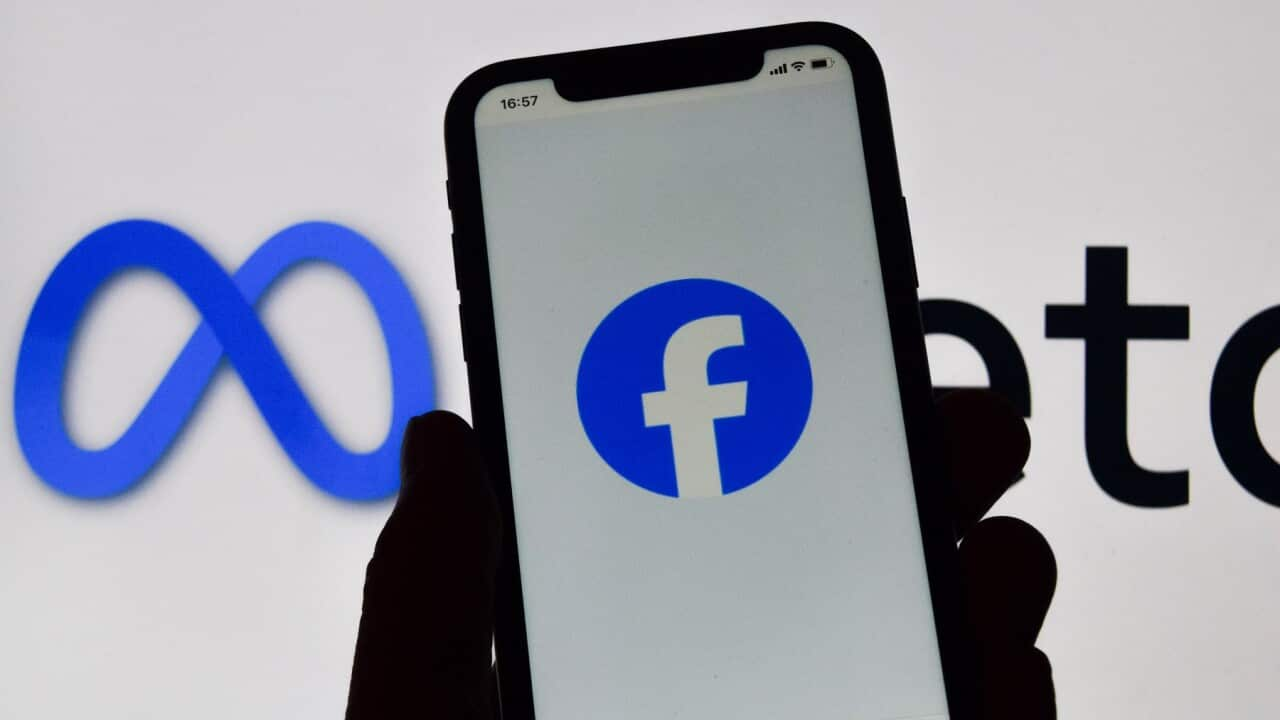TRANSCRIPT
Kicking off 2024 in a celebratory fashion...
... as the clock struck midnight, more than a million people admired Sydney's world-famous New Year's eve fireworks display.
One reveller sent a message of hope and goodwill as Australia entered a new year.
“For me, politically and personally be kind to everyone. Be considerate. And you be kind to others and people will be kind to you. That's it.”
The weather wasn't quite as kind as heavy rain triggered flash flooding over swathes of Australia's east coast.
Parts of southeastern Queensland and northern New South Wales collected at least two months' worth of rainfall over the first few days of 2024.
Queensland's Fire and Emergency Services Acting Deputy Commissioner Kevin Walsh spoke to SBS News as flooding persisted in the state.
“So those people obviously were affected Christmas Day, Boxing Day and the rain really hasn't let up since. So it's been a mammoth effort by our volunteers and our fire and rescue teams, our State Emergency Service, our Rural Fire Service, they've all been out on the ground, tirelessly assisting the people and they're out there again this morning in this rain.”
The optimistic messages of kindness which started the new year, were thwarted by events on January 26.
Many Australians were horrified by images of balaclava-clad neo-Nazis walking through the streets of Sydney, as police stopped the group at a North Sydney train station and ordered them away from Australia Day events.
It was just one of a number of similar events that took place across Sydney and Melbourne.
Prime Minister Anthony Albanese firmly condemned neo-Nazi activity in Australia, highlighting an ASIO warning about the rise of right-wing extremism.
“And on Australia Day, where we commemorate everything that is great about this country, we have a responsibility to look to what unites us, not what divides us. And I say to these people, quite frankly, look at yourself. There is nothing to be got in this country through hatred.”
In February, all eyes turned to Taylor Swift.
Her fans, known as 'Swifties', prepared for the global pop sensation to bring her world-famous Eras tour to Australia's shores.
Australian audiences were some of the biggest of her career - with some 320,000 fans across her Sydney tour and 288,000 attending her shows in Melbourne.
“This is the biggest show we have done on this tour or on any tour I've ever done.”
Nana and Marsha told SBS News they flew from Indonesian capital Jakarta to see Swift's tour.
Nana: "It was very very difficult. We went through a ticket war and we stood by for seven hours to get the tickets, so when we got the tickets it felt surreal."
Marsha: "We used multiple devices, like up to five devices at the same time, just to refresh and scroll up on the websites.”
The mood was sadly marred by attacks that shook the nation just a couple of months later.
Sydney's eastern suburbs were brought to a standstill on April 13 when a man went on a stabbing rampage in Bondi Junction's Westfield shopping centre, killing five women and a 30-year old male security guard.
The Prime Minister praised the efforts of security guard Faraz Tahir as a national hero, after he sacrificed his life in an effort to save others on his first day shift as a security guard at the shopping complex.
“On that devastating Saturday afternoon, he gave his life, running toward danger to protect people he had never met. Without doubt, he helped save lives that day. And without question, Faraz Tahir died a national hero.”
That same month, another stabbing attack rattled Sydney.
A 16-year-old boy was placed in custody after attacking Bishop Mar Mari Emmanual at Christ the Good Shepherd Church in Sydney's western suburb of Wakeley, during a live-streamed sermon.
The attack was labelled a 'terrorist incident' by police, giving law enforcement sweeping powers to conduct raids across parts of western Sydney - a decision New South Wales Police Deputy Commissioner David Hudson defended.
“We will allege that these individuals adhere to a religiously motivated violent extremist ideology. These investigations have been progressing since the incident. It was considered that the group, the subject of our attention, posed an unacceptable risk and threat to the people of New South Wales and our current purely investigative strategies could not adequately ensure public safety.”
Australians also responded to global events.
Students across the country set up pro-Palestinian encampments to demonstrate solidarity with the tens of thousands of civilians being killed in Gaza.
Controversy was sparked after students refused to abandon their occupations, including at a Melbourne university building.
UniMelb for Palestine's Dana Alshaer says it was the university's decision to cancel classes, not theirs.
“These students have been sitting here peacefully, protesting peacefully, demanding an end to complicity in genocide. We are here as an anti-genocide, anti-war movement and this should remain the focus. Cancelling classes is a university responsibility, it's not our responsibility. There's no more classes in Gaza.”
And when it came to Australia's interest in global events, the release of WikiLeaks founder Julian Assange from prison certainly snagged attention.
The 52-year-old struck a long-awaited plea deal with the United States, pleading guilty to a single charge of breaching the espionage law in the United States.
Julian Assange was initially facing multiple charges of disclosing and publishing highly sensitive material which could have seen him face a prison sentence of up to 175 years.
For him and his family, it was more than just a win for press freedom, especially for his wife Stella Assange, who was filled with mixed emotions upon receiving the news.
“I feel elated. I also feel worried because I'm so used to this, but it looks like we've got there and Julian's free. So I'll really believe it when I have him in front of me and I can hug him and then it will be real.”
Soon the hype of the Olympics was upon the world - and for Australia, an unexpected sport became all that anyone was talking about.
Australia's first Olympic breakdancer Rachael Gunn, better known as Raygun, went viral for her unique moves, including resembling a kangaroo, after competing in the group stage of the competition in France.
But it wasn't all positive for Raygun who admitted her struggles with mental health following the online hate she also received after her performance.
“Hi everyone. Raygun here. I just want to start by thanking all the people who have supported me. I really appreciate the positivity and I'm glad I was able to bring some joy into your lives. That's what I hoped. I didn't realise that that would also open the door to so much hate, which has frankly been pretty devastating.”
And there were also mixed reactions to a royal visit as King Charles and Queen Camilla made their first trip to Australia as King and Queen.
Fans of the monarchy queued for hours to catch a glimpse of the royals in Sydney and Canberra, the two cities visited in their whirlwind trip, amid ongoing concerns for the King's health.
VOXIE 1: "It's a great atmosphere, so many different nationalities."
VOXIE 2: "I can't believe I'm actually going to perform in front of the King and Queen in real life."
VOXIE 3: "This is really my dream to see them in real life. So this is the best day.”
While in parliament, they received a hostile reception from Indigenous Senator Lidia Thorpe, who condemned what she described as the devastating effects of Britain's colonisation of Australia on First Nations peoples.
“You are not our King. You are not sovereign. You are not King. You are not sovereign. You committed genocide against our people. Give us our land back. Give us what you stole from us.”
There was devastating news for two Australian families, after 19-year-olds Holly Bowles and Bianca Jones were among six tourists to die from methanol poisoning while on a holiday in Laos.
Bianca Jones' father, Mark Jones, was emotional as their bodies were returned home.
“We want to grieve. We miss our daughters desperately, the methanol poisoning. We cannot have our girls passing and this continuing.”
In positive news for Australian women, the government announced they were subsidising an endometriosis treatment called Visanne for the first time in more than three decades.
For sufferers of the condition, like Lauren Jeffries, the announcement was long-awaited.
“It's about bloody time for sure. If it can help a lot of other women the way it's helped me, even if it can help one woman, it will be worth it. Because honestly, as cliched as it is, it's life-changing for me.”
A more shocking event once again rocked Australia - after an arson attack on a synagogue in Melbourne.
Australia's Jewish community were shocked by the attack, as Rabbi Daniel Rabbin and Rabbi Yossi Friedman described.
RABBIN: "It was devastating, honestly, to think this is happening in 2024 in a place that I love and I appreciate so much."
FRIEDMAN: "We were mortified, we were horrified to think that this is happening here on our shores in Australia, multicultural Australia.”
While Muslim leaders stood in solidarity to condemn what has widely been described as a terrorist incident, the Muslim community also drew attention to rising rates of Islamophobia.
It follows an incident in western Sydney where residents woke to Islamophobic graffiti plastered on a busy road underpass.
Dr Nora Amath is executive director of the Islamophobia Register, which is witnessing levels of harassment around 530 per cent above average.
She says Muslim women are often the targets.
“So incidents could be that they're just going about their everyday business where they're shopping with their children in their pram and getting verbally and physically assaulted while the child is in the pram. As well as attempts to remove the headscarf from them. We've seen a lot of graffiti as well.”
And finally, a Christmas wish for the family of the remaining five Bali 9 members who returned to Australian soil after 20 years in Indonesian prisons for heroin trafficking.
The Prime Minister celebrated a diplomatic deal with Indonesia...
“This is an act of compassion by President Prabowo (Subianto) and we thank him for it. After 19 years in Indonesian prison, it was time for them to come home. They did a serious crime and they have rightly paid a serious price for it, but it was time for them to come home.”
... as Australians prepare for Christmas and a new year ahead.
